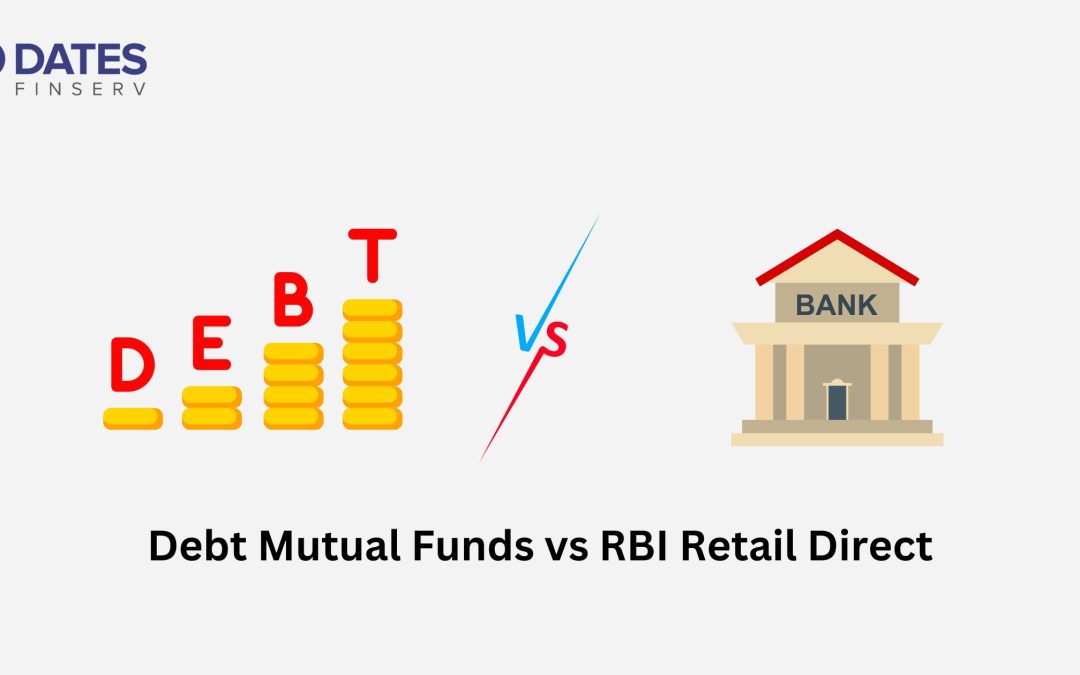If you are risk-averse and want to grow your wealth, Government securities can be a safe and reliable option. These securities offer a fixed return on maturity and are backed by the Government. You can choose to invest solely in these fixed-income securities or use them to diversify your portfolio. Recently, the Government introduced RBI retail direct, an online platform that allows retail investors to directly buy and sell Government securities. This platform provides an alternative to investing in Government securities through debt mutual funds.
Debt Mutual Funds
Investing in a debt mutual fund scheme involves investing in fixed-income securities such as Government securities and company bonds. If you choose a gilt fund, a significant portion of your portfolio, approximately 80%, will include Government securities. As with any mutual fund, debt funds are managed by experts who charge a fee, known as the expense ratio. You have the option of investing in a lump sum or through monthly installments by starting a SIP.
What is RBI retail direct?
RBI retail direct is an initiative by the Government of India that provides investors with a direct mode of investment in Government securities, bypassing intermediaries. This online platform enables investors to invest in four categories of Government securities, which include Treasury bills, Central Government bonds, State Government Bonds, and Sovereign Gold Bonds.
Also, read it – financial vs investment planning
Debt mutual funds vs RBI retail direct
Investing in Government securities through RBI retail direct and debt mutual funds differ in the following ways:
- Minimum initial investment: Investing through RBI retail direct requires a minimum investment of Rs.10,000, while mutual funds offer the flexibility of investing in lump sum or monthly payments through a SIP with a minimum installment amount of Rs.500.
- Maturity period: The maturity period of debt mutual funds ranges from 3-5 years for close-ended funds and up to 10 years for special category gilt funds. However, with RBI retail direct, the maturity period depends on the type of security you purchase, ranging from 91 days for T-bills to over a year.
- Investing cost: Mutual funds charge an expense ratio, which can 2% of your investment amount. Gilt funds have a lower expense ratio of 0.3%-0.6%. With RBI retail direct, no intermediary is involved, resulting in no investing cost.
- Tax applicability: Interest earned on Government securities is taxable as per your income tax slab, payable every year through RBI retail direct. With debt mutual funds, the tax rate depends on the holding period, with a flat rate of 20% applicable for long-term capital gains (LTCG) over three years, along with indexation benefit.
- Liquidity: Debt mutual funds offer greater liquidity as the market of institutional buyers regularly buys and sells Government securities. RBI retail direct requires you to find buyers, which may be difficult, leading to a loss in case of lower prices.
What is right for you?
For individuals who are new to the investment field, seeking professional assistance is recommended. Fund managers provide valuable guidance in maintaining your portfolio and ensuring liquidity when you invest in a debt fund. However, this option is not available when you choose to invest directly through the RBI retail direct platform.
From a taxation standpoint, investing through debt mutual funds is more advantageous for individuals in higher tax brackets who intend to hold their investment for more than 3 years. This is because long-term capital gains are taxed at a flat rate of 20% with indexation benefits. However, if you are looking to invest for a shorter period, the RBI retail direct option may be more suitable, as it is taxed similarly in the short term, saving on investment costs
Conclusion
Investing in Government securities is often considered a safe option that offers stable returns. However, it is important to keep in mind the associated risks of interest rate fluctuations and liquidity. It is crucial to analyze the market conditions and determine the investment horizon before deciding between debt mutual funds and RBI retail direct.
While debt mutual funds offer the assistance of professional fund managers to manage your portfolio and provide liquidity, investing directly through RBI retail direct platform saves on investment costs and is beneficial for those in lower tax brackets.

